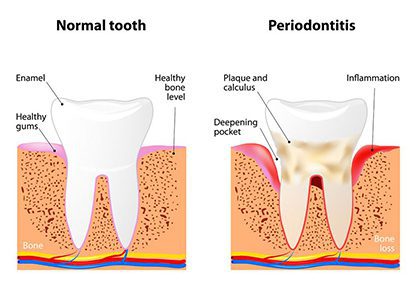One of the most effective ways to ensure your oral health and comfort is through preventative dental care. This means that you need to understand what things have the potential to threaten your oral health so that you can take action to protect your mouth against these threats. One of the things that can most adversely affect your oral health are dental injuries.
While dental injuries can occur as a result of many different situations, it is estimated that roughly one third of all dental injuries are sports related. It therefore follows that athletes would do well to take whatever action is necessary to protect their teeth and mouth against injury. This can be done effectively with the use of athletic mouthguards.
Athletic Mouthguard Basics
It is common knowledge that most sports activities carry with them an inherent risk of injury, whether mild or serious. It is for this reason that there are numerous safety devices that are either recommended or required for certain sports, including helmets, shin guards, knee and elbow pads and much more. Athletic mouthguards are another important safety device that is highly recommended for many sport activities, and even required for some.
An athletic mouthguard is a soft plastic or laminate device that is worn in the mouth for the express purpose of preventing injuries to the teeth, mouth, cheeks, tongue and jaw during sport activities. Without a mouthguard, individuals who participate in sport activities could potentially suffer from chipped or broken teeth, fractured crowns or bridgework, lip and cheek injuries, tooth root damage, fractured jaws and concussions. These injuries are far more than just uncomfortable or painful at the time they are received, they can potentially lead to lifelong dental issues that are extremely expensive and time-consuming to handle. In fact, the reality of dental injuries often resulting from high impact sports is so well-known that athletic mouthguards are required when participating in known collision sports like football, hockey and boxing. That said, other sport activities can include instances of incidental contact that can also lead to oral injuries. For this reason, athletic mouthguards should be worn during any sporting activity where any sort of physical contact with the head or mouth may potentially occur, including acrobatics, bandi, baseball, basketball, bicycling, boxing, equestrian events, field events, field hockey, football, gymnastics, handball, ice hockey, inline skating, lacrosse, martial arts, racquetball, rugby, shot put, skateboarding, skiing, skydiving, soccer, softball, squash, surfing, volleyball, water polo, weightlifting and wrestling.
When professionally designed, an athletic mouthguard fits over the teeth in your mouth so as to protect them, your jaw bones and your soft tissues–including your lips, cheeks, gums and tongue–from injuries caused by traumatic blows and collisions. When a dental professional takes impressions of your mouth, these impressions are then used to create a unique mouthguard that is made to stay in place during a moment of impact, effectively protecting your mouth and teeth. The mouthguard also serves as a very important barrier when the lower jaw is pushed into the upper jaw with great force, and it can prevent against cerebral hemorrhage and neck injuries. However, mouthguards that are inexpensive and easy to obtain are not quite as beneficial. These mouthguards are not professionally made to fit snugly in your mouth, and as a result they can be uncomfortable and bulky, interfering with your ability to breathe and speak well.
An athletic mouthguard is easy to care for–one simply needs to check it for holes, tears or other damage after each use and then rinse it with cold water or mouthwash before storing it in a firm, perforated container away from direct sunlight or high temperatures. Every few days the mouthguard should be thoroughly cleaned with either a toothbrush and toothpaste or soapy water before being rinsed and stored. In the case that the mouthguard becomes damaged, it is best to contact one’s dentist and arrange to have a new one made as soon as possible.
Obtaining Athletic Mouthguards from Dovgan Dental
At Dovgan Dental, Dr. Dovgan makes an impression of your teeth and surrounding jawbone and sends it to a professional laboratory for the construction of your athletic mouthguard. The sport you intend to participate in is taken into consideration when determining the thickness of the guard to ensure that it will truly provide the best protection for your needs.




